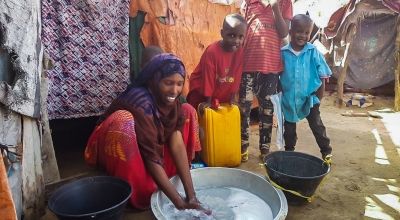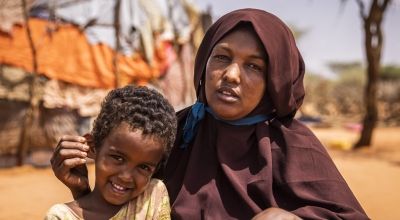
Read our 2024 annual report

Knowledge Hub
Amid conflict, drought, displacement, and political instability, the situation for Somali women and girls is dire.
The country ranks among the worst for women’s rights, with a UNDP Gender Inequality Index score of 0.776 (the maximum score, 1, indicates complete gender inequality). It’s fourth on the UNDP’s list for highest levels of inequality, and twelfth on Georgetown University’s Women, Peace and Security Index.
What does that look like, specifically, for the women and girls who have to live with these inequalities every day? We look at five key challenges, with some input from this year’s Women of Concern Honouree Ifrah Ahmed who, after escaping traffickers in Somalia and receiving asylum in Ireland, launched the Ifrah Foundation to end female genital mutilation — in Somalia and around the world.
1. Female genital mutilation is a silent epidemic
One of the most pervasive and distressing statistics on gender equality in Somalia: UNFPA estimates that 99.2% of Somali women and girls, ages 15-49, have undergone female genital mutilation (FGM). FGM is a form of gender-based violence that is often disguised as a cultural practice, passed from one generation to the next. It is, in fact, a silent epidemic in Somalia, as Women of Concern honoree Ifrah Ahmed explains:
“Parents, communities, religious leaders, elders still think that this is a tradition that should be kept and continued… there is no common understanding and awareness of the issue. Some religious leaders are still saying that FGM should be practiced, while others don't condone it. Men are ashamed to talk about FGM. Mothers, sisters, grandmothers say that if they have been through FGM, their daughter should do the same. It’s the mentality.”
The WHO has categorically stated that the practice of FGM “has no health benefits for girls and women” and is “a violation of [their] human rights.” In fact, FGM can lead to lifelong problems, including severe bleeding, cysts, infections, complications during pregnancy, and infant mortality.
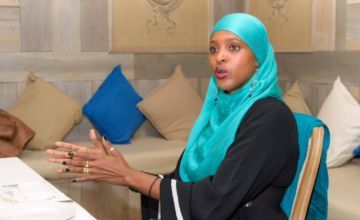
2. Somalia is one of the worst countries to become a mother
Undergoing FGM is just one of several factors that give Somalia the sixth-highest maternal mortality rate in the world: One out of every 12 Somali mothers will die due to pregnancy-related causes.
Many of these causes are preventable: A 2017 study of 30 maternal deaths in the Bosaso District showed that 25 out of those 30 women delayed seeking care. For many, that delay was compounded by delays in reaching and receiving care. In another study based on focus group interviews, one Somali woman said “a lot of people think that if they go to the doctor, it’s what makes you sick — so staying away from the doctor makes you pretty healthy.” Another participant added: “Somali women never go to the doctor, because we go and the doctor believes we are crazy or psychotic, and we say that makes us more crazy so we don’t go.”
Some of these barriers to seeking care are based on these superstitions, but just as often, women who want care are in remote locations, unable to find a qualified nurse or midwife, can’t afford to be treated, or are discouraged from being proactive about their healthcare by the patriarchal structures of their communities. One complicating factor cited by many reports is that, as a Muslim-majority country, most Somali women will not see a male doctor or healthcare provider. This is also a key issue, as many Somali women are aware of safe and effective options for family planning. However, according to UNFPA, only 2.1% of Somali women have access to those options.

3. FGM isn’t the only form of GBV here
FGM isn’t the only form of gender-based violence (GBV) in Somalia. Child marriage is prevalent in the country; 35.5% of Somali women ages 20-24 were married or in a union before they turned 18; 16.7% of them did so before their 15th birthday.
The cycle of crisis in the country has enabled a climate where the risks of sexual harassment, exploitation, and abuse — along with intimate partner violence and rape — run high. Displacement within the country due to both conflict and climate change means that many women and girls live in informal camp communities, which lack infrastructure and are often located some distance from key locations like distribution centres, schools, water points, and clinics. Women and girls walking to these places are often vulnerable to attacks, and many of the families living in IDP communities are female-headed, meaning that there is no other option for running these crucial errands. Even staying in isn’t safe: UNFPA reports that 45% of GBV incidents in Somalia occurred at home.
UNFPA adds in that same report that the lockdown measurements from the early days of COVID-19 also led to increases in incidents of reported domestic and sexual violence. This number may even be larger than reported, as many women in Somalia don’t have access to sexual and gender-based violence services. More often than not, women have historically not reported acts of violence as they have been more likely to be arrested for the crime of “insulting” their attackers than the perpetrator being arrested for assault.
This changed in 2018, when progressive legislation was passed to criminalize sexual violence (a landmark for countries that, like Somalia, adhere to Sharia Law). However, regions like Somaliland have, to-date, yet to begin implementing that legislation.
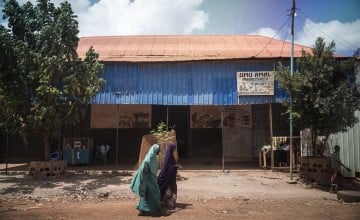
4. Somali girls are kept out of the classroom
The threat of violence, as mentioned above, is one of the factors that discourage Somali girls from claiming their basic human right to an education. Other barriers, including economic and social norms (again, norms driven by patriarchal structures), are in place, meaning that only 25% of Somali girls are attending formal schools for their primary education. This figure comes from a 2022 USAID report, which also finds that only 35% of Somali women, ages 20 to 24, have at least some years of schooling in their past.
A lack of education means a lack of skills that women can use later in life to build a livelihood and financial independence. While traditional Somali family structures lead to men earning money and women keeping the home, many families are now female-headed (due to the ongoing war and families being split up due to the climate crisis). In this position, and through no fault of their own, women are effectively set up to fail.
Education is also a key tool in eradicating practices like FGM and other forms of gendered violence, as Ifrah Ahmed points out. One of the three pillars of the Ifrah Foundation’s work towards ending FGM in Somalia revolves around community education as one method towards “creating a legal, health, and social community support system that empowers individuals to stand up.” In other words, an educated community is an empowered community.
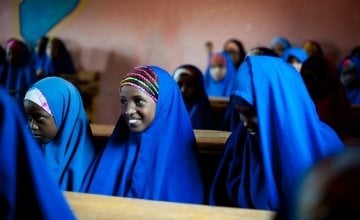
5. Despite quotas, female representation in government is in decline
Many of the challenges faced by Somali women and girls won’t be eradicated without Somali women having a seat at the decision-making table. While the country has committed to having women make up at least 30% of its Parliament, the Senate and House of the People are falling short of these numbers — and losing ground. In 2016, 24% of the representatives elected to the House of the People were female. The current administration is only 20%.
Until real parity is achieved in the governing and law-making bodies of Somali government — with representatives making decisions based not only on the principles of gender equality, but also equality for women who may face compound discrimination based on class, sexuality, health, disability, or age (to name just a few) — the laws that hold Somalis to account won’t help to enforce the real change that is needed to build equity within the country.
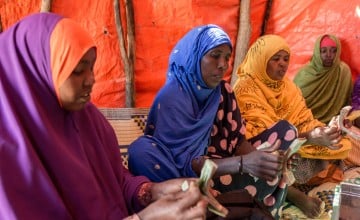
What needs to happen now?
While we have many data points on gender equality in Somalia, there are still key figures that are unable to be accounted for. It’s a seemingly small detail in the face of many large challenges, but as Ahmed says, it’s a critical piece of the pie. “Without credible data, it will be very hard to advocate for ending FGM, to gain support for our cause and to show the results of our work,” she says.
Ahmed adds that fostering changes in attitudes and behaviours across generations and whole communities is essential to ensuring that legislation like 2018’s Sexual Offences Act are not only passed and implemented, but upheld. This includes working with community elders, traditional leaders, and — in the case of protecting the rights of Somali girls — parents.
“We need to create safer communities for women and girls through transforming harmful social norms like FGM that contribute to sexual violence. We need to create an environment in which survivors can obtain holistic and compassionate support from quality services at the hospitals.”
Supported by data, these changes work in concert with the legislation and systemic protections needed to uphold the rights of women and girls in Somalia. It’s a tall order, but one that women like Ahmed believe in and work towards fulfilling every day.
Gender equality in Somalia: Concern’s response
With nearly four decades’ experience in the country, Concern’s work in Somalia aims for gender transformation, whether we’re addressing the needs of communities on the frontlines of the climate crisis, helping displaced families build livelihoods and a sense of security and stability, or directly addressing the needs of Somali women and girls.
Last year, in response to the growing hunger crisis in the Horn of Africa, Concern supported 13 fixed and 15 mobile health centres in the country, providing outpatient consultations, treatment for malnutrition, antenatal and postnatal support, as well as childhood immunizations to over 503,000 patients.
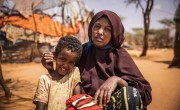
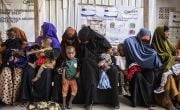
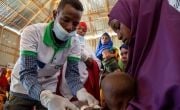
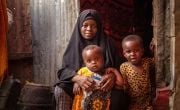
We also have a longstanding commitment to helping women gain financial independence. In Somaliland, we worked to establish 65 self-help groups for women. These groups support women to establish internal savings and loans systems, contributing to their economic and social empowerment.
Women of Concern event
Ifrah Ahmed is a prominent Somali-Irish activist and is our 2023 Women of Concern Honouree.


